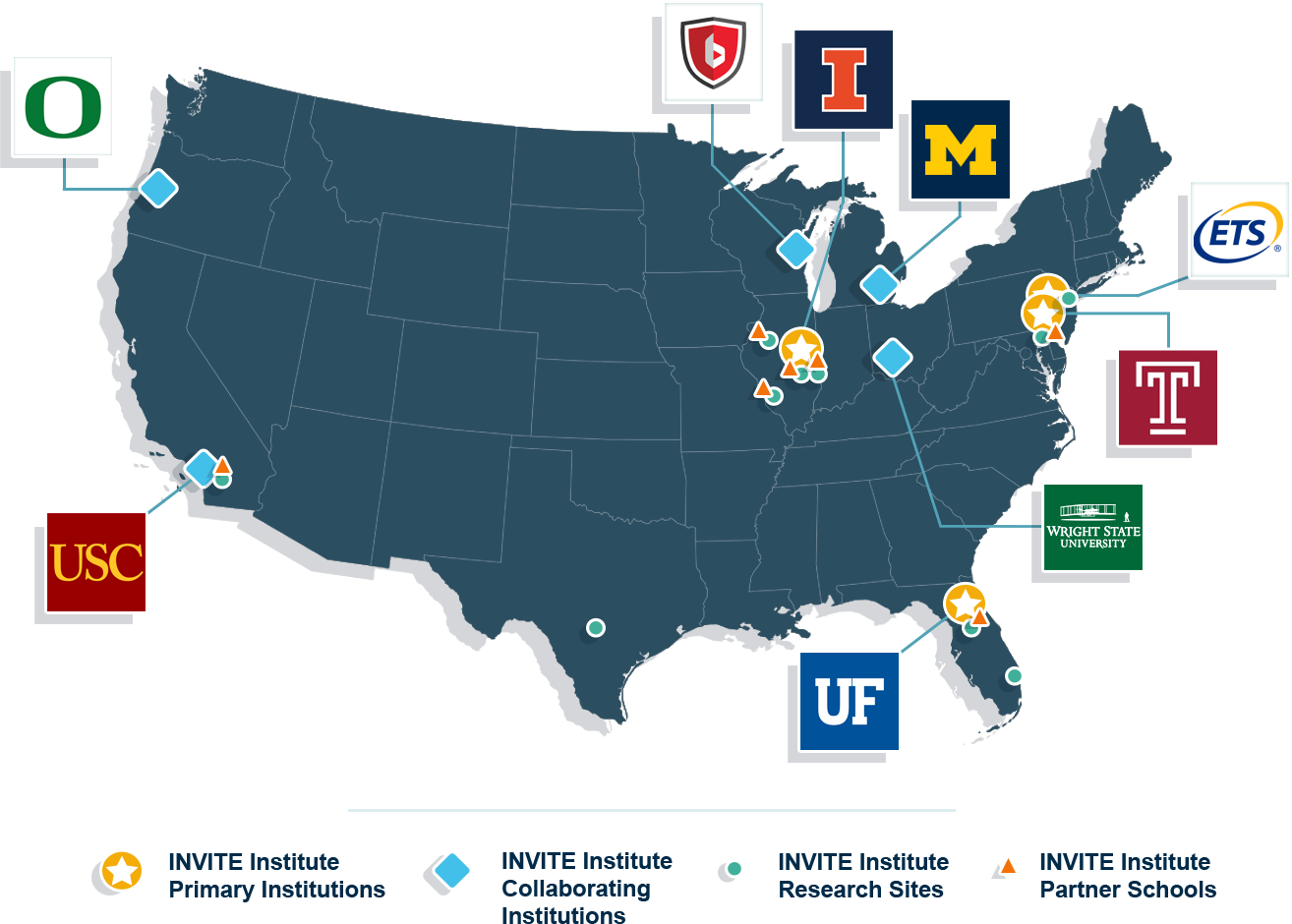
THE PROBLEM
The U.S. K-12 educational system is designed around sets of rigorously described standards for learning (e.g., Common Core, NGSS). These standards emphasize what learners should know and what they should be able to do. Unfortunately, substantial gaps persist in access, relevance, and outcomes with disproportionate impacts on underserved and underrepresented learners in STEM. Evidence suggests that a missing piece is key noncognitive skills which refer to “a set of attitudes, behaviors, and strategies that are thought to underpin success in school and at work” (Gutman & Schoon, 2013) . Underlying beliefs, such as sense of belonging and interest in STEM, are similarly critical (Garner et al., 2018; Jagers et al., 2019) . Education often fails to foster these critical skills, leading to children who “become dependent on adult-driven procedures and routines rather than their own skills and motivation” and “can’t process the vast amount of instruction that comes their way each day” (Stafford-Brizard, 2016 p. 4) . Meanwhile, fostering such skills has been shown to significantly improve academic achievement for children from historically marginalized groups (Farrington et al., 2012). The importance of noncognitive skills is eloquently summarized in Paul Tough’s book, How Children Succeed.
APPROACH
INVITE Institute research will take an evidence-based and learning-sciences driven approach while investigating how AI can amplify transformative change in how computer-based STEM learning fits within a landscape that is neither equitable nor inclusive. Historically, AI in Education research has (appropriately) emphasized cognitive aspects of learning, with more recent progress building systems that capture emotional and metacognitive aspects of learning. While the field has evaluated and fielded many successful technologies in the last two decades, substantial opportunities remain to engage learners in ways that are more closely aligned with their underlying needs and expectations. INVITE research embraces this challenge by focusing on three critical noncognitive skills, persistence, academic resilience, and collaboration. We consider these skills alongside three critical self-beliefs: self-efficacy, sense-of-belonging, and interest, together which we hypothesize will meet the needs of more learners and increase diversity and fairness in STEM education through the educational technologies children use to learn every day.
BUILDING A NEXUS
INVITE will also engage in aggressive outreach activities along with community and school engagement. By enlisting members of the K20 educational ecosystem as part of an INVITE community of practice, we pursue two common goals:
- Build capacity for AI-augmented learning
- Broaden participation of historically excluded groups in STEM
As an institute comprised of collaborating organizations we are well-positioned to make advances in foundational AI, natural language processing, adaptive systems, and broadening participation that will benefit the broader community for many years to come. Furthermore we can better foster learner outcomes of persistence, resilience, and collaboration as well as deeply engage K-12 educators, university faculty and students, and community partners to form a nexus of people who take action and propagate evidence-based best practices.
REFERENCES
Farrington, C. A., Roderick, M., Allensworth, E., Nagaoka, J., Keyes, T. S., Johnson, D. W., & Beechum, N. O. (2012). Teaching adolescents to become learners: The role of noncognitive factors in shaping school performance–A critical literature review . Consortium on Chicago School Research. https://files.eric.ed.gov/fulltext/ED542543.pdf
Garner, P. W., Gabitova, N., Gupta, A., & Wood, T. (2018). Innovations in science education: infusing social emotional principles into early STEM learning. Cultural Studies of Science Education , 13 (4), 889–903. https://doi.org/10.1007/s11422-017-9826-0
Gutman, L. M., & Schoon, I. (2013). The impact of non-cognitive skills on outcomes for young people. Institute of Education, University of London. https://discovery.ucl.ac.uk/id/eprint/10125763
Jagers, R. J., Rivas-Drake, D., & Williams, B. (2019). Transformative social and emotional learning (SEL): toward SEL in service of educational equity and excellence. Educational Psychologist , 54 (3), 162–184. https://doi.org/10.1080/00461520.2019.1623032
Stafford-Brizard, K. B. (2016). Building blocks for learning: A framework for comprehensive student development (pp. 1–16). Turnaround for Children.
